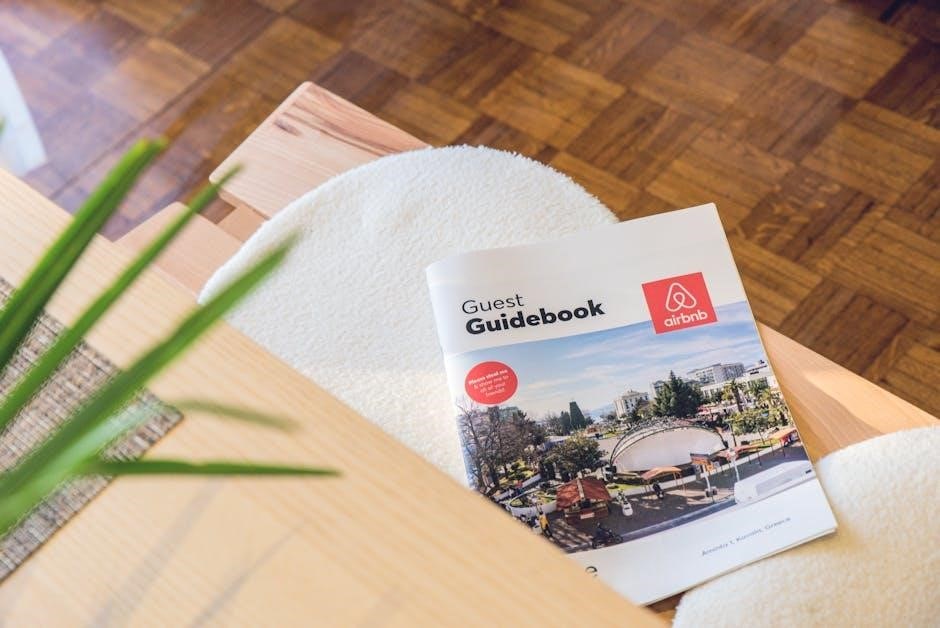Understanding the Concept of Being “Confined and Horny”
Being “confined and horny” describes the emotional and sexual frustration that arises in restrictive environments, blending physical longing with psychological restlessness, often amplified by modern societal pressures.
Defining the Term and Its Relevance in Modern Contexts
The term “confined and horny” refers to a state of heightened sexual desire coupled with frustration due to physical or emotional limitations. In modern contexts, this concept has gained relevance due to increasing isolation, remote work, and digital saturation. The blend of physical longing and psychological restlessness is amplified by societal pressures, making it a common experience in today’s fast-paced world. Confinement, whether physical or emotional, often intensifies sexual frustration, leading to introspection and a quest for relief. This phenomenon is deeply intertwined with contemporary issues like lockdowns, digital dating, and the blurred lines between privacy and connectivity. Understanding this concept is crucial for addressing the emotional and physical challenges it presents, particularly in an era where isolation and intimacy coexist in complex ways. By exploring its roots and implications, individuals can better navigate the interplay between confinement and desire in modern life.
Exploring the Psychological and Emotional Aspects

The psychological and emotional dimensions of feeling “confined and horny” involve a complex interplay of desire, frustration, and isolation. Confinement often heightens emotional vulnerability, intensifying feelings of longing and restlessness. This state can lead to increased self-awareness, as individuals reflect on their unmet needs and desires. Emotionally, the lack of physical connection may trigger feelings of loneliness or anxiety, further complicating the experience. The mind-body connection plays a significant role, where psychological stress can manifest as heightened sexual tension. Additionally, societal expectations around intimacy and relationships can exacerbate feelings of confinement, creating a sense of disconnection. Understanding these psychological layers is essential for addressing the emotional toll of confinement and developing healthy coping strategies. By acknowledging the emotional depth of this experience, individuals can work towards finding balance and relief in challenging environments.

Managing Sexual Frustration in Confined Spaces
Confined spaces can amplify sexual frustration, requiring mindful strategies to maintain emotional balance and redirect energy productively, ensuring well-being in restrictive environments.
Healthy Coping Mechanisms and Techniques
Healthy coping mechanisms are essential for managing sexual frustration in confined spaces. Techniques like mindfulness, journaling, and physical exercise can help redirect energy and reduce tension. Engaging in hobbies or creative activities provides an outlet for emotional release. Setting personal goals and practicing self-care fosters a sense of control and balance. Mindful breathing and meditation can also alleviate stress and improve emotional regulation. These strategies not only address physical needs but also promote mental well-being, ensuring a healthier approach to managing desires in restrictive environments.
The Role of Communication in Relationships
Effective communication is crucial for navigating sexual frustration and maintaining harmony in confined environments. Open dialogue allows partners to express desires, boundaries, and emotional needs, fostering mutual understanding. Active listening and empathy help both individuals feel validated, reducing tension. Discussing expectations and finding compromises can prevent misunderstandings and resentment. Communication also encourages honesty about physical and emotional limitations, promoting a healthier dynamic. By addressing feelings and concerns openly, couples can strengthen their bond and find ways to satisfy each other’s needs within the constraints of their situation. This approach not only alleviates sexual frustration but also deepens emotional intimacy, ensuring both partners feel respected and prioritized.
Exploring Alternative Outlets for Sexual Energy
Redirecting sexual energy into creative, physical, or intellectual pursuits can alleviate frustration, providing healthy distractions and personal growth opportunities while addressing underlying desires constructively.
Masturbation and Self-Exploration
Masturbation is a natural and healthy outlet for sexual energy, especially in confined environments where physical intimacy with others may not be possible. It allows individuals to explore their bodies, understand their preferences, and release pent-up sexual tension. Self-exploration can foster a deeper connection with oneself, helping to identify what stimulates pleasure and satisfaction. Additionally, masturbation can serve as a form of stress relief, reducing anxiety and promoting emotional well-being. It’s important to approach self-exploration with an open mind, embracing creativity and mindfulness to enhance the experience. By prioritizing consent with oneself and maintaining a respectful attitude toward one’s body, masturbation becomes a positive and empowering practice. This personal intimacy can also encourage self-awareness, which may translate into healthier relationships and communication patterns in the future;
Engaging in Creative and Productive Activities
Engaging in creative and productive activities serves as an effective outlet for channeling sexual energy and managing frustration in confined environments. Activities such as writing, painting, or playing music allow individuals to express and redirect their emotions constructively. Physical activities like exercise or yoga can help release tension and improve mood. Productive tasks, such as organizing, learning new skills, or setting personal goals, provide a sense of accomplishment and fulfillment. These activities not only distract from sexual urges but also enhance mental well-being by fostering a positive focus. By immersing oneself in creative pursuits, individuals can transform sexual energy into meaningful achievements, reducing stress and promoting emotional balance. This approach encourages personal growth and resilience, offering a healthy alternative to unaddressed frustration in confinement.

Building Intimacy in Confined Environments
Building intimacy in confined environments focuses on fostering emotional closeness, trust, and connection through shared activities, meaningful conversations, and mutual understanding, strengthening relationships without physical interaction.
Non-Physical Ways to Connect with a Partner
Connecting with a partner in non-physical ways fosters emotional closeness and strengthens relationships. Engaging in meaningful conversations, sharing personal thoughts, and active listening can deepen trust and intimacy. Emotional vulnerability and empathy play a crucial role, allowing partners to feel understood and valued. Shared activities like reading, watching movies, or playing games can also create bonding experiences. Even small gestures, such as writing heartfelt notes or surprise gifts, can reignite connection. These methods emphasize the importance of mental and emotional alignment over physical proximity, ensuring intimacy remains vibrant even in confined environments.
Setting Boundaries and Prioritizing Consent

Setting boundaries and prioritizing consent are essential for maintaining respect and comfort in confined environments. Clear communication helps establish mutual understanding of personal limits and desires. Consent must be explicit, enthusiastic, and ongoing, ensuring both partners feel safe and respected. Respecting boundaries fosters trust and strengthens emotional connection. Open dialogue about comfort levels and preferences prevents misunderstandings and promotes a healthier relationship dynamic. Regular check-ins can help adapt to changing needs, ensuring both partners feel heard and valued. Prioritizing consent and boundaries not only enhances intimacy but also builds a foundation of mutual respect and understanding, crucial for navigating confined spaces together.
